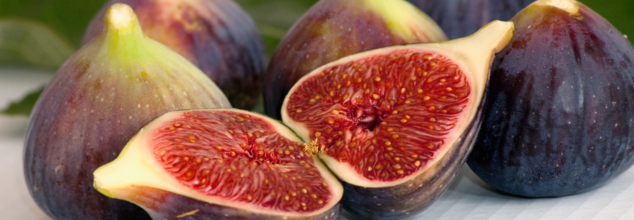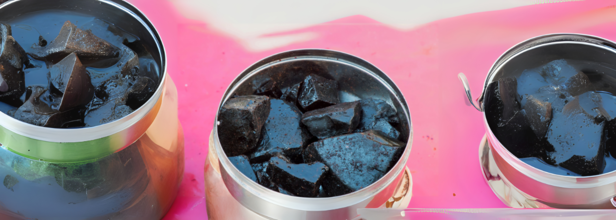- Health Conditions A-Z
- Health & Wellness
- Nutrition
- Fitness
- Health News
- Ayurveda
- Videos
- Medicine A-Z
- Parenting
- Web Stories
Ayurvedic Remedies For Seasonal Heat Illnesses

(Credit-Canva)
As temperatures climb, our bodies often struggle with the intense heat, leading to problems like tiredness, dehydration, headaches, and heat rashes. These symptoms can have serious effects on your health, making it crucial to take steps to lessen the impact of heat exhaustion.
While we all may have heard of Ayurveda, most of us didn’t know how it offers medical remedies for all kinds of problems. Not only does Ayurveda offer us remedies and routines for bodily ailments like pain, but it also offers natural ways to combat the effects of heat.
As the temperature gets worse, many people are opting to stay home, wear full clothes to avoid harmful sunlight from affecting their skin and other preventive measures. While drinking water is crucial for survival, one must also add other foods that promote hydration and moisture in our bodies. There are many ayurvedic herbs that help hydrate us as well as keep heat-related illnesses at bay. Here are some things you should try.
Amla
Amla, also known as Indian Gooseberry, is packed with Vitamin C and antioxidants. Its naturally cooling nature helps to lower body heat and boost your body's defenses. You can drink fresh amla juice or add dried amla powder to your food to enjoy its revitalizing benefits. Studies have also shown that amla can help with digestion, which is especially useful in summer when digestive issues are common.
Tamarind
The summer season often brings ripe tamarinds, almost as if nature is offering one of its best remedies to combat the heat. South Indian gravies commonly use tamarind for a tangy flavor. Consider having South Indian sambar or rasam during the afternoon this summer to help counter the blazing heat.
Mint
Mint is widely recognized for its cooling and refreshing qualities. It contains menthol, which provides quick relief from heat-related discomforts like headaches and nausea. You can make a soothing mint tea by steeping fresh mint leaves in hot water, or simply add mint leaves to salads and drinks for a cooling twist. Research also suggests that mint can help with digestion and promote a sense of calmness.
Lemon
One of the most widely used remedies to beat the summer heat is nimbu sharbat, a natural cooling drink made from lemon. Lemon acts as a cooling agent and helps bring down body heat. So, feel free to add a generous dash of lemon syrup to your salads, soups, and other dishes for a great taste and a refreshing summer boost.
Coriander
Coriander is not just a flavorful herb but also a cooling one. Both its seeds and leaves have a cooling effect on the body, making it a valuable aid against heat exhaustion. Soaking coriander seeds overnight and drinking the water in the morning can help cool the body from within.
Fennel
Fennel tea is another refreshing choice for staying cool and hydrated on hot days. Fennel seeds are known for their cooling and digestive benefits. They help reduce body heat and ease symptoms like bloating and indigestion. Chewing on a few fennel seeds after meals can help with digestion and prevent discomfort related to heat.
Sandalwood
Sandalwood is a prized herb in Ayurveda for its cooling and soothing properties, especially for the skin. Applying sandalwood paste to the body can help reduce body heat and soothe heat rashes and irritation. You can also add a few drops of sandalwood essential oil to your bathwater for a relaxing and cooling experience.
This Ayurvedic Fruit Is Known For Lowering Blood Sugar And Clearing Your Skin

(Credit-Canva)
Ayurveda, the ancient subject of medicine, is an important part of Indian history. The ancient medicinal techniques in ayurveda may seem unreliable to many; however, many studies and research have shown that the ayurvedic teachings from centuries ago are still relevant.
One such medicinal fruit that we learned about from Ayurveda is Anjeer.
Anjeer, commonly known as a fig, is a sweet and chewy fruit that grows on the Ficus tree. These trees lose their leaves seasonally and can grow quite tall, reaching about 7 to 10 meters (23 to 33 feet). Figs are believed to be one of the first plants ever grown by humans, and they are still a very important crop worldwide, eaten both fresh and dried. The edible part is the fleshy, hollow fruit itself.
Nutritional Powerhouse
Figs, both fresh and dried, are packed with good things for your body. They are an excellent source of vitamins, minerals, healthy carbohydrates, natural sugars, and beneficial plant compounds called phenolics and polyphenols. In fact, figs contain more of these healthy phenolics than even red wine or tea! They are also high in fiber and are fat and cholesterol-free, containing many important amino acids.
Health Benefits of Anjeer
Figs and parts of the fig tree have been used in traditional medicine for a long time due to their many health benefits:
Diabetes Management
Anjeer may help control diabetes by increasing the body's natural insulin production. Its antioxidant and anti-inflammatory properties are thought to contribute to this. However, if you're taking diabetes medication, it's best to talk to your doctor before adding Anjeer, especially the leaves, as they might lower blood sugar too much.
Digestion and Constipation
Figs are a great source of dietary fiber, which is excellent for digestion. In traditional practices, soaking 2-3 Anjeer fruits and eating them in the morning is recommended to relieve constipation by promoting bowel movements.
Skin Health
The antioxidants in Anjeer are good for your skin. Applying a paste of Anjeer mixed with honey to your face can help improve skin health and might even reduce dark spots.
Other Traditional Uses
Traditionally, various parts of the fig tree – the fruit, roots, and leaves – have been used to treat a wide range of issues. These include problems with the stomach and intestines (like indigestion, colic, or diarrhea), breathing issues (such as sore throats, coughs, and bronchitis), and even heart and blood vessel problems. Figs have also been used to reduce inflammation and muscle spasms.
Specific Uses
Fig fruit juice mixed with honey has been used for bleeding. In Indian medicine, figs are used to help with liver and spleen diseases, and they are known for being mild laxatives, helping with coughs, and increasing urine production.
Ways to Enjoy Anjeer
Figs can be eaten in various ways: fresh, dried, or even made into jams. Dried figs are also sold as a sweet snack due to their natural sugar content. A paste made from the fruit can also be applied to swellings, tumors, and inflamed areas to help reduce pain.
Is Shilajit Just for Men, Or Can Women Benefit From This Ayurvedic Supplement Too?

Credits: Canva
Shilajit, a sticky, tar-like mineral compound, is frequently marketed as a vitality booster for men. But does that mean it’s not suitable for women? Ayurveda practitioner Mr. Danny Kumar Meena, Founder & CEO at Girlyveda, says that while the marketing is gendered, the benefits are not.
“Shilajit is a Rasayan, which means it rejuvenates the body,” he says. “It supports strength, stamina, fertility, immunity, and hormonal balance—not just in men, but in women too.”
Hormonal Balance, Menstrual Health & Fertility
Shilajit can be particularly helpful for women facing hormonal imbalances, including conditions like PCOS or irregular menstrual cycles. “It helps balance Vata dosha, which plays a crucial role in regulating the endocrine system,” Mr. Meena explains. “When hormones are in check, menstrual regularity and fertility improve.”
It also enhances Shukra Dhatu, the reproductive tissue responsible for fertility in both men and women. For women, this means improved ovarian function and libido.
“People don’t talk enough about how well it works for female fertility and hormonal health,” Mr. Meena points out.
Menopause, Bone Health & Postpartum Recovery
Post-menopause, many women face a decline in bone density and vitality. Shilajit helps by supporting Asti Dhatu (bone tissue) and enhancing Ojas, the vital essence of the body that governs immunity and vitality.
“It replenishes the seven dhatus (tissues) of the body—blood, muscle, fat, bone, marrow, reproductive tissue, and plasma—making it valuable in postpartum recovery as well,” he says.
Mental Health & Cognitive Benefits
Shilajit has also been described in ancient Ayurvedic texts like Bhav Prakash as a Medhya Rasayan, which means it's beneficial for the brain.
“It helps improve memory, learning, and attention span,” says Mr. Meena. “In today's world of information overload, Shilajit can support focus and mental clarity. It also helps regulate stress by balancing hormone levels, especially cortisol.”
Energy, Digestion & Immunity
Chronic fatigue, low energy, or poor digestion? Shilajit could help. It enhances Bal (strength) and Vyayam Shakti (exercise capacity), and improves Dhatvagni—the refined stage of digestion that ensures nutrients are converted into healthy tissues.
It also boosts immunity by enhancing Ojas. “Shilajit strengthens the body from within,” Mr. Meena notes.
How Should Women Consume It?
Shilajit is hot in potency, so dosage and combinations—called Anupan in Ayurveda—matter greatly.
With cow’s milk: Promotes calm, enhances fertility and rejuvenation
With honey: Fights obesity, balances Kapha
With ghee: Builds immunity (Ojas)
With lukewarm water: Acts as a gentle detoxifier
“The time of day and season matter too. Morning is ideal, but avoid it during summer and autumn (Grishma and Sharad Ritu), when Pitta dosha is naturally high,” Mr. Meena advises.
Caution: Who Should Avoid Shilajit?
Despite its many benefits, Shilajit is not for everyone, especially if taken without supervision.
Avoid if:
- You experience heavy menstrual bleeding or frequent periods
- You are pregnant
- You have bleeding disorders
- You are on long-term medication without medical consultation
“Because of its hot potency, it can cause side effects like burning sensation, constipation, itching, or even nosebleeds—especially in summer,” Mr. Meena warns. “Women with high blood pressure or heart issues should be particularly cautious. While it may help in certain cardiac conditions, it could also worsen palpitations if not used properly.”
Shilajit can be extremely beneficial for women—but only when taken under medical supervision. Its adaptogenic properties, rejuvenative effects, and support for reproductive, mental, and immune health make it a powerful Ayurvedic supplement.
“Ayurveda isn’t about ‘one size fits all’. It’s about using nature mindfully to bring balance to the body. With the right dose, timing, and combination, Shilajit can be as good for women as it is for men,” Mr. Meena concludes.
Note: This article is intended for informational purposes only and is not a substitute for professional medical advice, diagnosis, or treatment. The content does not constitute a recommendation to use Shilajit or any other supplement. Always consult a qualified healthcare provider before making changes to your diet, lifestyle, or supplement routine—especially if you have a pre-existing medical condition or are pregnant, nursing, or on medication.
Shilajit For Wellness Is Rebranding Ancient Healing; Are We Oversimplifying Ayurveda To Make It Aesthetic?

Credits: Health and me
Shilajit, the word rolls off the tongue like a sacred chant—ancient, mysterious, powerful. Just a few years ago, Shilajit was tucked away in apothecary cabinets or Ayurvedic scriptures, today it's repackaged in matte-black jars and glossy Instagram reels, with words like "clean energy," "mood booster," and "longevity hack", hashtagged #BiohackYourLife. It’s being stirred into protein shakes, dropped into morning lattes, and touted as a cure-all on TikTok. But here’s the thing: what happens when an ancient healing system rooted in deep personalisation is flattened into a trendy wellness fix?
Shilajit—a mineral-rich resin that oozes from the Himalayas, Altai, and Caucasus mountain ranges—has been used in Ayurveda for centuries. Packed with fulvic acid, humic compounds, and over 85 trace minerals, it’s traditionally been prescribed as a rasayana: a rejuvenator. But as Shilajit gets pulled into the glossy world of modern wellness, we have to ask: Are we distorting ancient healing systems in our rush to rebrand them as trending lifestyle hacks?
Also Read: C-Section Births May Raise Odds Of Leukemia In Children, Study Finds
Shilajit’s therapeutic effects are now being studied through a contemporary lens. Fulvic acid enhances mitochondrial energy production—crucial for stamina and recovery. Dibenzo-alpha-pyrones support nervous system health and offer antioxidant properties. It’s no surprise then that today’s nutraceutical brands are racing to bottle it for everything from testosterone enhancement to cognitive support. But here’s where the waters get murky.
Why Ayurveda Might Be Oversimplified?
Ayurveda isn’t just about ingredients. It’s a complex, deeply individualized system rooted in the balance of three doshas—Vata, Pitta, and Kapha—which reflect a person’s constitution. The same herb can be healing for one dosha type and aggravating for another.
When brands market Shilajit as a one-size-fits-all solution, they erase this core nuance. There’s no mention of whether your Pitta might be too high or your Kapha sluggish. No consultation, no customization. Just glossy minimalism dressed in Sanskrit font.
What we’re seeing is a sanitization of Ayurveda. The ritual becomes a product. The lineage becomes a lifestyle brand. And the consumer becomes someone looking for quick fixes rather than holistic healing.
Shilajit isn’t alone. The same thing happened with turmeric (rebranded as "golden milk"), ashwagandha (now sold as "adaptogenic chill"), and ghee (marketed as keto butter). Platforms like TikTok and Instagram flatten the cultural context of these practices, turning them into 30-second aesthetic reels.
And here’s the thing: accessibility is great. The global interest in Ayurveda is exciting. But there’s a thin line between translation and appropriation. When these herbs and rituals are stripped of their philosophy, they become detached—just ingredients in the next wellness cocktail.
Also Read: Aspirin Isn’t Always Safe For Older Adults Anymore—Here's Why Doctors Are Warning Against It
Problem With Oversimplification
The Ayurvedic system is deeply personal. Vata, Pitta, and Kapha—these aren’t lifestyle labels; they’re diagnostic tools that determine treatment. The reduction of Ayurveda to a minimalist aesthetic—earth-toned product photography, abstract mandala designs, and simplified “natural = good” messaging—ignores the nuances. More dangerously, it can lead to misuse. Someone with high Pitta may actually worsen their inflammation by using an energetically heating herb like Shilajit.
What the Science Supports — and What It Doesn’t
Studies have backed Shilajit’s efficacy in specific areas:
Energy & Endurance: Fulvic acid supports ATP production, enhancing stamina.
Cognitive Support: Preliminary trials show potential in Alzheimer’s prevention due to its neuroprotective properties.
Reproductive Health: Some studies suggest improved sperm count and testosterone levels.
Skin & Anti-Aging: Antioxidants help with cellular repair and may reduce visible signs of aging.
However, long-term effects, contraindications with medications, and suitability across different populations remain under-researched.
Why Is Shilajit Becoming So Accessible?
In the global nutraceutical boom, Shilajit is suddenly the poster child for holistic vitality. It’s being added to everything from testosterone-boosting capsules to anti-aging skin serums. Brands highlight its power to fuel ATP production, detox the liver, balance hormones, and enhance cognitive clarity.
And look, there’s solid science behind some of it. Fulvic acid, the major bioactive in Shilajit, has been linked to better nutrient absorption and mitochondrial function. Studies suggest its neuroprotective properties may support brain health and reduce oxidative stress. It’s even shown potential in improving male fertility and testosterone levels.
Traditionally, Shilajit isn’t just something you take because it looks good on your supplement shelf. It’s prescribed with deep care—often with other herbs, after assessing the patient’s age, digestion, lifestyle, and mental state. It's also heat-sensitive and meant to be processed carefully, not just extracted and jarred.
Moreover, it’s not meant for everyone. People with excess Pitta, for example, might find Shilajit aggravating without balancing herbs. When we erase these layers, we risk reducing a rich, philosophical science to a commodity.
Can Modern Wellness and Ancient Wisdom Coexist?
Yes, but it requires effort. Integrative brands need to do more than just source clean ingredients; they must invest in education, respect Ayurvedic frameworks, and promote personalization. That means explaining dosha balance. That means stating who a product might not be for. And that means engaging Ayurvedic practitioners, not just influencers.
Shilajit has incredible potential. It can support immunity, brain function, stamina, and fertility. But when it’s marketed like an energy drink or mood booster, the deeper wisdom that shaped it gets lost.Can Modern Wellness and Ancient Wisdom Coexist?
Yes, but it requires effort. Integrative brands need to do more than just source clean ingredients; they must invest in education, respect Ayurvedic frameworks, and promote personalization. That means explaining dosha balance. That means stating who a product might not be for. And that means engaging Ayurvedic practitioners, not just influencers.
Shilajit has incredible potential. It can support immunity, brain function, stamina, and fertility. But when it’s marketed like an energy drink or mood booster, the deeper wisdom that shaped it gets lost. For those considering Shilajit, here’s what a balanced approach looks like:
- Consult a practitioner trained in Ayurveda or integrative medicine.
- Know your dosha. It’s not just a quiz—it's a roadmap.
- Start slow. Shilajit is potent and shouldn’t be overused.
- Check sourcing, adulteration is common, authentic Shilajit should be tested for heavy metals and purity.
Pair it with lifestyle. It’s not magic—it works in synergy with sleep, diet, and routine.
© 2024 Bennett, Coleman & Company Limited

